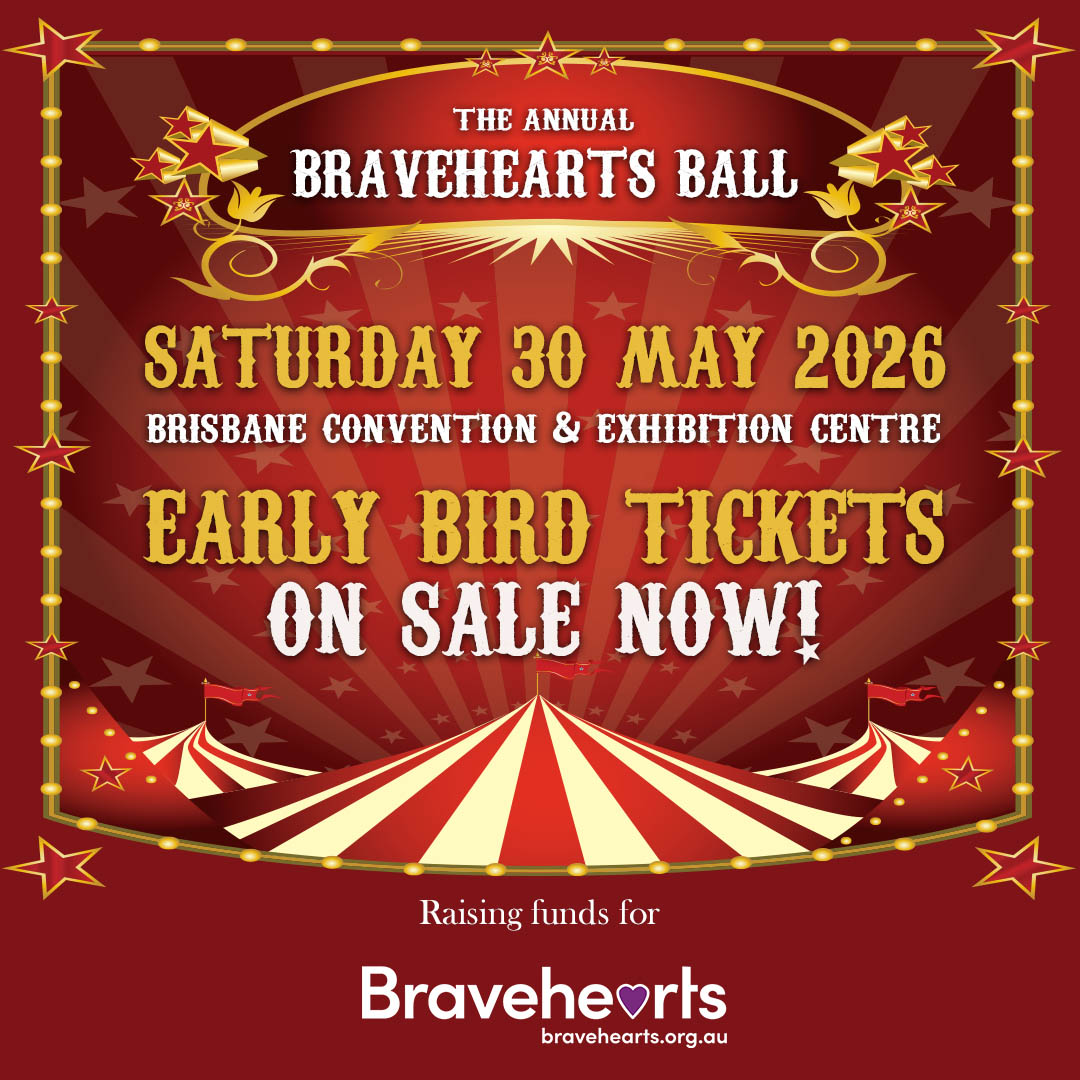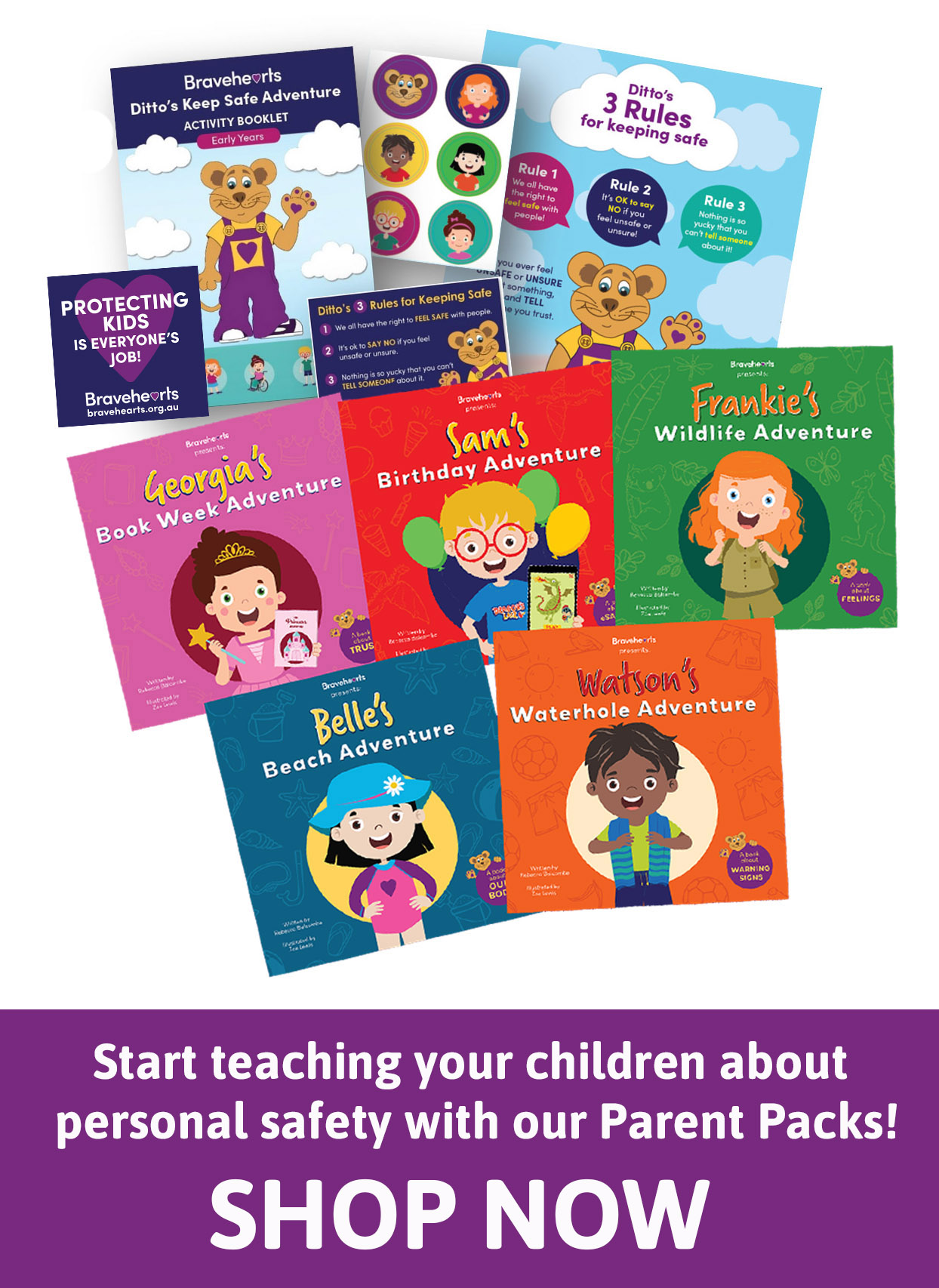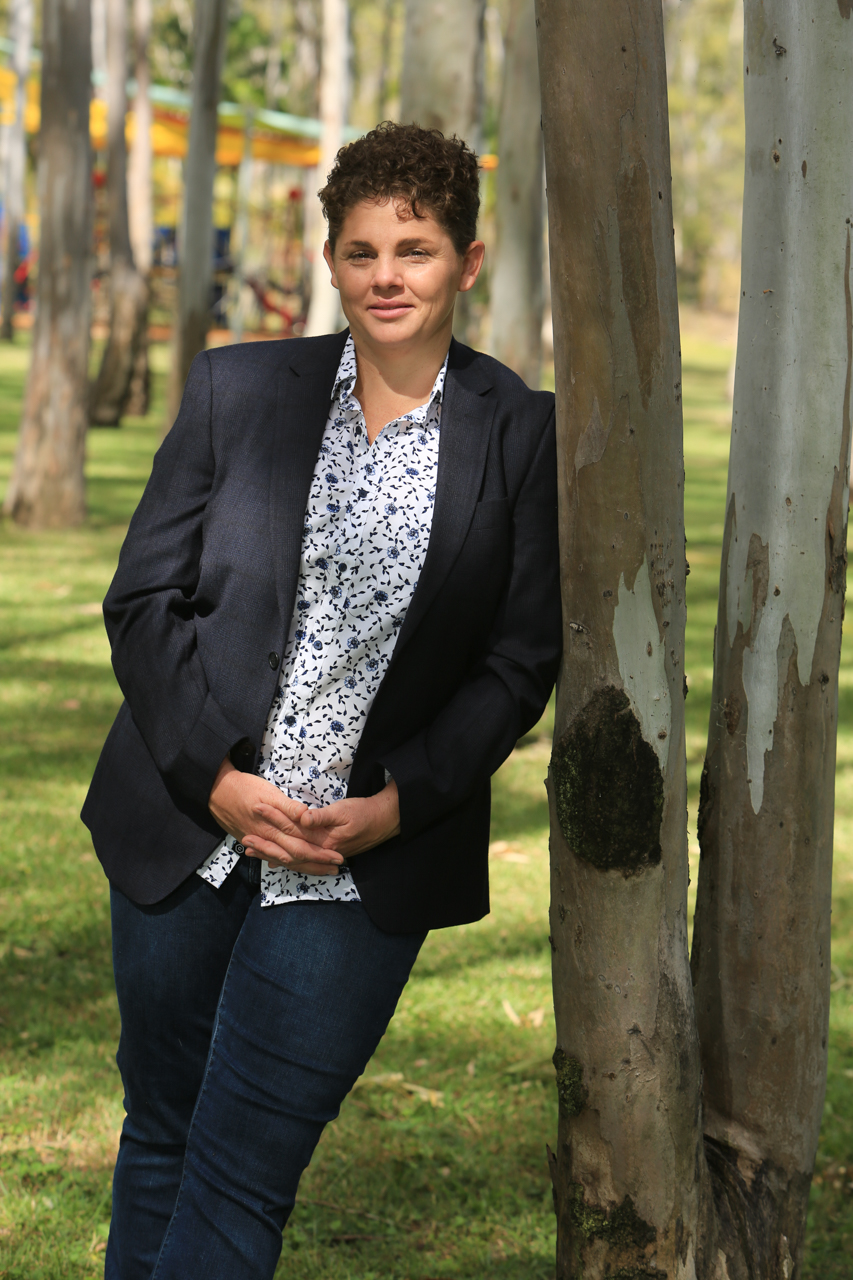Category
Helpful Links
- Home > Latest News > I was sexually abused as a child. This is why I didn’t speak up and this is what I needed
*TRIGGER WARNING* The following article contains discussion about child sexual abuse.
If you need to talk to someone, please call Bravehearts’ Support Line on 1800 272 831 (Mon to Fri, 8:30am-4:30pm AEDST) or Lifeline (24hrs) 13 11 14

By Guest Author: Kelly Humphries – Author, Speaker, Survivor, Coach, Ambassador
As a survivor of child sexual abuse, I know the fear of speaking up firsthand.
I know the shame and the seemingly hundreds of reasons why I chose not to speak up, even to the adults in my life who I knew were safe and loved me.
As someone who now shares openly, many parents have come to me and said, “my child would tell me if something happened to them.”
Unfortunately, this isn’t always the case. The silencing is powerful.
Grooming is calculated; and while we generally think of perpetrators grooming children, they commonly groom parents as well.
Often perpetrators present to parents as particularly friendly, providing seemingly caring, yet calculated support. They may be overly eager to establish a relationship and connection with the parents as well as the child.
Perpetrators will seek to build an emotional connection with the child they are grooming and subsequently isolate that child from their parent. This can happen over a long period of time, or in the case of online grooming, it can take minutes.
So how do we prevent it? What can we do to ensure our children tell us when something unsafe is happening?
The first step in prevention is education, which is why programs such as Bravehearts’ Ditto’s Keep Safe Adventure, are so important. Programs like this give children the language to speak up if something doesn’t feel right.
It also helps to understand the barriers that some children may face in speaking up about abuse. Barriers created by the manipulation of the perpetrator.
As a child, I had many opportunities to speak up about what was happening to me, yet I never did – not until I was 19. It is why I feel it’s so important to tell you why I didn’t speak up and what I needed as a child that may have helped me disclose sooner.
Why didn’t I speak up?
I was confused. How the perpetrator can make the child feel can be very confusing for the child, as those feelings are sometimes ‘good’ (more on this later).
What did I need at the time?
- An understanding and awareness about body cues (i.e. racing heart = fear)
- An understanding of effective boundaries and who should and shouldn’t be touching my body. This is hard when abuse is perpetrated by a close family member. It is also very confusing when trying to understand the types of roles adults are meant to play when the adults who a meant to be safe are violating your fundamental values of trust, and your physical boundaries.
Why didn’t I speak up?
Like many children, I didn’t have the language around what was happening to me in order for me to tell someone (disclose).
What did I need?
- To know the names of my body parts to explain what was happening without SHAME. (I felt shame and felt ‘dirty’. I was confused because I couldn’t explain what was happening.)
- To normalise the names of body parts as part of everyday life and it not feel embarrassing to speak about.
- To know that my feelings mattered. Rather than discount or dismiss a child’s feelings instead ask… ‘tell me why you feel this way?’
Why didn’t I speak up?
I felt dirty, ashamed, and disgusting.
What did I need?
- To know that I was safe. All children need to know they are safe and there is nothing so ‘yucky’ that they cannot speak about it.
- To know that if I said something I would still be loved and believed. That I was not what I felt. That I was beautiful.
Why didn’t I speak up?
I thought I would get in trouble.
What did I need?
- Reassurance that I was safe and loved and that it was not my fault.
- Strong boundaries and to be able to communicate them and know that this was ok. This is still hard for me even as an adult survivor. Perpetrators often target children who are kind, sensitive, and emotionally vulnerable. Perpetrators use these traits to make threats to intimidate and maintain silence.
- To know I would not get in trouble if I told my secret.
Why didn’t I speak up?
I thought I would destroy my family/tear apart the family unit. This is incredibly common when the perpetrator is a family member. The last thing I wanted was to be responsible for breaking apart the family (which is what the perpetrator told me would happen). This can be made even harder if the perpetrator is a primary caregiver.
What did I need?
- I needed to know that our family would be safe and that the fault of any abuse lies at the feet of the perpetrator.
- Early on, strong boundaries would have helped me recognise right from wrong.
- Early education – knowing the names of body parts and being able to speak unashamedly about what had happened.
Why didn’t I speak up?
I felt that I might die, or someone I love would get hurt (even the offender).
What did I need?
- To know that I will be protected and safe if I disclose. I was so scared that something would happen to me or my family if I spoke up. (Some offenders threaten to kill the child or their caregiver.) To be protected and if I said something that I wouldn’t have to see the offender again.
- While I wanted it to stop, I had a caregiver threaten “if anyone ever hurts you I’ll kill them.” Even though a child wants the abuse to stop, they don’t always want to see the offender hurt (especially if the offender is a primary caregiver).
Why didn’t I speak up?
I thought I had done the wrong thing and it was all my fault.
I blamed myself well into my adult years before I understood how offenders work. The truth is, it is ALWAYS the perpetrator’s fault. A child will be made to believe it’s their fault through the language used by the offender, and how the offender plays on the emotions of the child.
What did I need?
- Help to understand my personal boundaries and to know that anyone touching me in a sexual manner is wrong, no matter who that person is.
- To be reassured that no matter what happened, it was not my fault.
Why didn’t I speak up?
I thought I’d be alone; that I’d lose my ‘special’ friend. The perpetrator through grooming creates a ‘special’ relationship with the child. My uncle did.
I knew if I said something I would no longer have this connection. It may not be a healthy connection but it is attention, and perpetrators work very hard to maintain this. This is confronting, I know, but it’s the truth.
Furthermore, as a child, even though I ALWAYS wanted someone to make the abuse stop, it was confusing when the offender made it a pleasurable experience. This causes significant shame (even as an adult thinking back!). Perpetrators use this to maintain silence.
What did I need?
- To know my personal boundaries, names of body parts, and the difference between ‘right touches’ and ‘wrong touches’ so I knew what was happening to me was not right.
Why didn’t I speak up?
I thought if I told someone, my parents will stop loving me, won’t believe me, abandon me, and be disappointed in me.
What did I need?
- To know that my parents loved me and I was safe.
- To know that my parents would believe me, no matter who the offender was.
- That they would still be proud of me, no matter what.
Thinking about all these reasons why I didn’t speak up as a child makes me sad, mostly because I know how hard it is when it’s already too late. I have gone fairly deep on these and it doesn’t get easier as an adult.
I have beaten myself up for years over why I waited so long to speak up. What I share with you here is the knowledge of my first-hand experience, and the words of other survivors who shared with me.
Simply put, children need connection. To feel safe and loved and there is nothing so bad they cannot tell you about it. It took me a long time to learn this and that it wasn’t my fault.
Perpetrators are manipulative. It’s to serve their own needs and do everything in their power to maintain control over the child and keep their silence. When the perpetrator is someone that the child loves and trusts, the impact on the capacity of the child to feel safe and able to speak out is complex.
The best prevention is being connected to your children and educating your whole family on body safety. To normalise speaking about the things we have made so ‘taboo,’ so that it doesn’t feel shameful to speak about. To normalise tough conversations.
Give your children the best chance by NOT giving perpetrators any chance at all.
About the Author
Kelly Humphries is a survivor of child sexual abuse, Bravehearts ambassador, advocate, author, speaker, law enforcement officer and trauma coach. Learn more about Kelly’s work and her powerful autobiography, ‘Unscathed Beauty’ on her website.
You can connect with Kelly on Facebook, Instagram and LinkedIn.
Related articles and resources
Responding to Disclosures of Child Abuse
Child Sexual Assault: Effects and Indicators
Teaching Children Personal Safety: Parents and Carers Guide
Child Sexual Assault: Myths and Facts
Sexual Behaviours in Children: What is Common and What is Not?
 BACK
BACK


